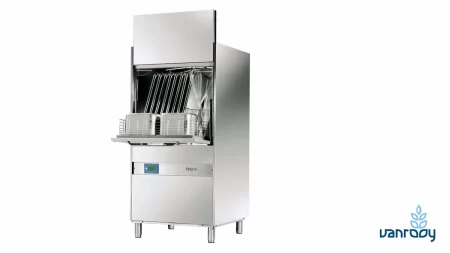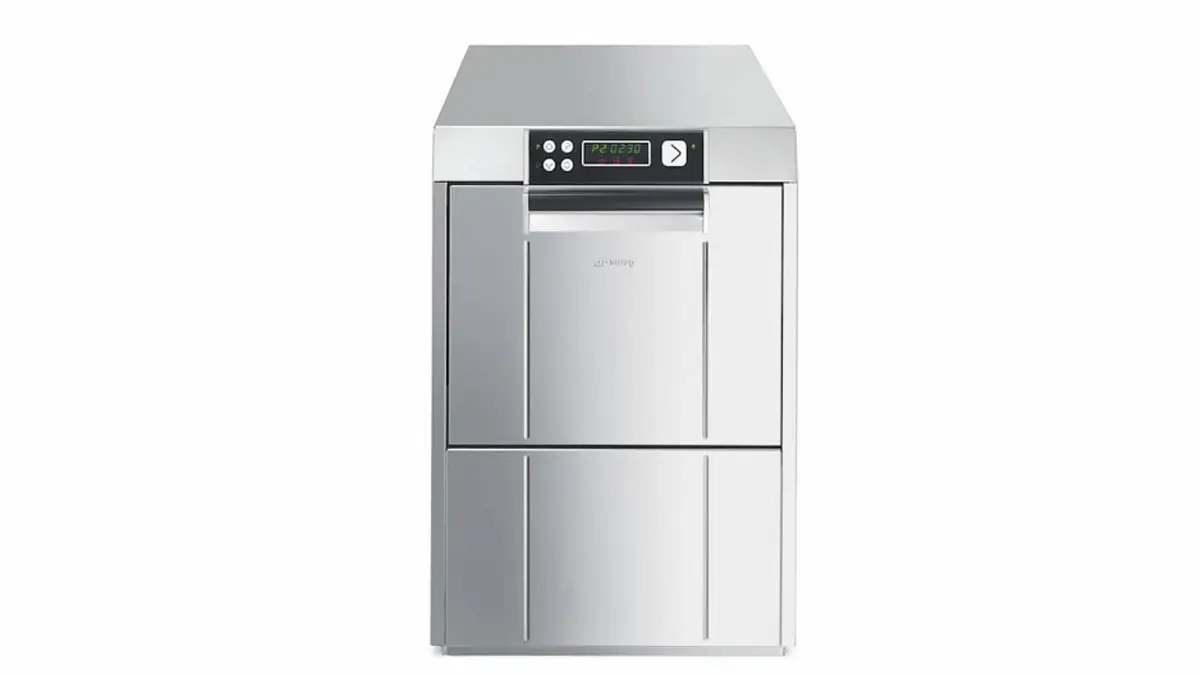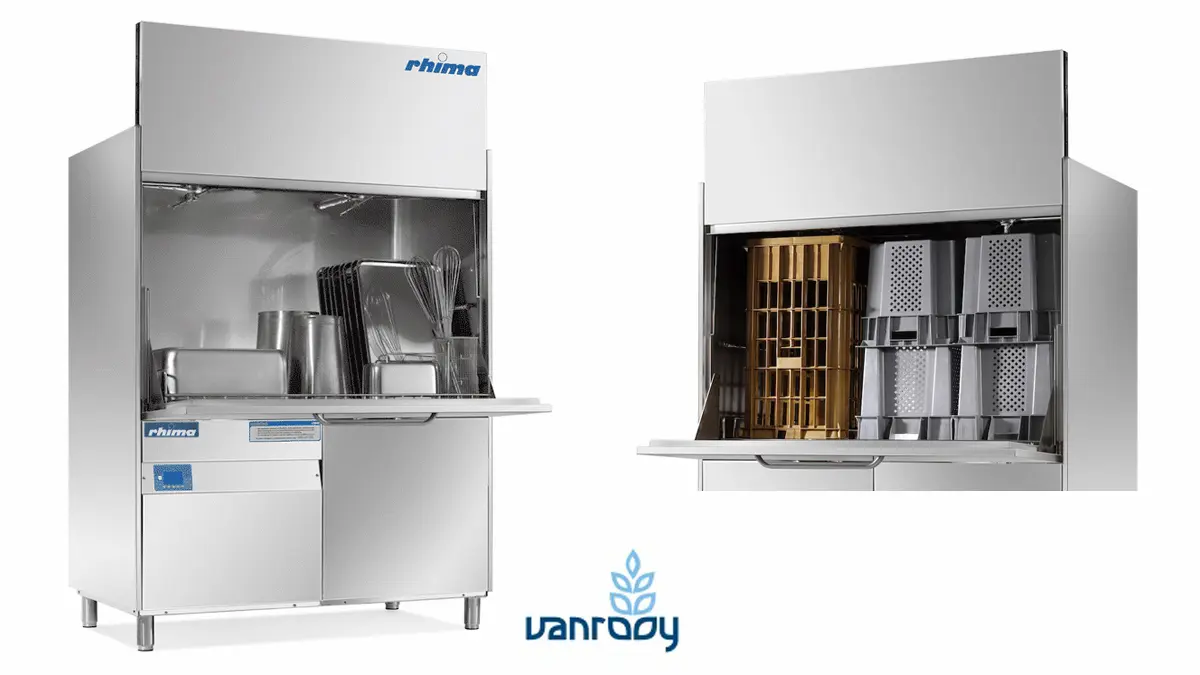Commercial Dishwasher FAQ’s Australia
Commercial dishwashers are critical machines in any busy bakery, patisserie restaurant, cafe, or catering business. However, making the right choice for these heavy-duty workhorses can be more complex than it seems.
In this article, we will provide answers to the most frequently asked questions that food service owners have when purchasing and installing a commercial dishwasher in Australia.
We’ll cover the key differences in home models, costs, types of machines, installation considerations, and more. With this guide, you’ll be able to make an informed decision when selecting the right commercial dishwasher for your business.
Table of Contents
Toggle
Commercial Dishwasher FAQs
What is the difference between a commercial dishwasher and a home dishwasher?
There are several key differences between commercial and home dishwashers:
Size and capacity – Commercial dishwashers are much larger and can wash a larger quantity of dishes per cycle. They often have multiple racks and can hold full dishware sets for an entire restaurant. Home dishwashers are smaller and only have room for dishes from a family.
Durability – Commercial dishwashers are designed to run multiple times per day, every day. They are made of stainless steel and high-quality components that can handle constant use. Home dishwashers are designed to only run 1-2 times per day. Commercial dishwashers can also complete a full washing cycle in just 2-5 minutes.
Washing power – Commercial washers use more powerful spray jets, higher water temperatures, and stronger detergents to sanitise dishes and cut through caked-on food. Home dishwashers are less powerful, therefore provide less intense cleaning.
Drying effectiveness – Commercial dishwashers have powerful fans and ventilation systems that help dry dishes. Home dishwashers often leave moisture on dishes after a cycle.

SMEG 2 Drawer Dishwasher
How much does it cost to install a commercial dishwasher?
The cost to install a commercial dishwasher will depend on the type of machine, brand, size, existing setup, and local labour rates. On average, installing a commercial dishwasher costs $2,900 to $15,000. With larger wholesale options ranging up to $25,000 and beyond.
Here are the factors that affect the installation cost:
Dishwasher cost – The machine itself will be the biggest portion of the total project cost. Entry-level commercial dishwashers usually start at around $2,900 – $6,000 + GST (model dependant.)
Plumbing work – The dishwasher will need proper water supply lines, drains, and vents installed. This can cost $500-$1,000 in labour for a plumber.
Electrical work – A dedicated circuit must be run to handle the motor and heating elements. Depending on the setup of your building, this could cost nothing or a nominal amount.
Ventilation – Some commercial dishwashers may require an exhaust hood and ventilation ductwork to remove steam. Depending on the model selected, this can be optioned with the dishwasher at the time of purchase.
What are the disadvantages of a commercial dishwasher?
While commercial dishwashers are essential for busy restaurants, there are some downsides to consider:
- High upfront cost– Commercial dishwashers have a steep purchase price, ranging from $2,900 on the low end up to $15,000 or more for large models. Installation, plumbing, and electrical work are all to be factored in.
- Repairs – Due to their heavy and repetitive use, over time your dishwasher will require repairs. These parts and labour can cost more than a domestic appliance due to the quality components.
- Higher utility usage– Commercial washers require more electricity, gas, or water usage to power the sprayers and heaters. This can lead to higher utility bills.
- Energy inefficiency– Older models can be very wasteful with water and electricity. New models are more efficient, but still use more than a home dishwasher.
- Takes up space– Commercial dishwashers are typically larger in size and need to be factored in carefully when planning a commercial space.
- Noise– Commercial and industrial washers are louder than a domestical dishwasher when running a wash cycle.
What are the two types of commercial dishwashing machines?
Commercial dishwashers generally fall into two categories:
1. Passthrough Dishwashers
These dishwashers feature a hood that is open on 3 sides, allowing the user to pass through the dishes from one side to the other. Typically these are installed with benches either side, allowing the user to easily and safely wash each load. They are designed for very high-volume operations like large restaurants or hotels.
Benefits:
- Extremely fast cycle times – can wash hundreds of dishes per hour.
- Allows for an assembly line-style workflow.
- Versatile for dishes, pots, pans, trays, etc.
- Very efficient for continuous loads.
Drawbacks:
- Require 3-phase electrical service
- Space required
- Higher purchase and operating costs
- Can be overly complex for smaller needs
2. Door-Type and Hood-Type Dishwashers
Also called “stationary rack” dishwashers. Racks are loaded into the front and washed in place. Best suited for cafes, bars, and mid-size restaurants, these dishwahers come as Underbench or Hood-Type washers
Benefits:
- Compact size takes up minimal space (Underbench)
- Lower purchase cost than conveyor models
- Simple controls and operation
- Some 10amp and 15amp single phase options
- Good balance of speed and efficiency
Drawbacks:
- Not as powerful as passthrough washers
- Lower overall capacity
- Sequential batch operation
Can I use a commercial dishwasher in my house?
You can certainly install a commercial dishwasher in your home, but there are some important considerations:
Electrical – Commercial dishwashers often require a three phase power, which most homes don’t have. You will always need a qualified electrician and converting the electricity in your home will add costs. Some models run on standard 120V power.
Plumbing – Residential water lines operate at a lower pressure than a commercial kitchen. You may need to upgrade your home’s lines to properly run the dishwasher.
Venting – Commercial washers need powerful exhaust vents that aren’t typically present in a home. Proper installation is critical.
Noise – The decibel level of a commercial dishwasher far exceeds a home model. This can be disruptive in an open floor plan.
Can you use a residential dishwasher in a commercial kitchen?
It is not recommended to use a residential dishwasher in a commercial kitchen. Residential dishwashers are not designed to withstand the rigors of a busy commercial environment. There are several reasons why a residential dishwasher is unsuitable for commercial use:
- Durability – Residential appliances are designed for periodic use, around 1-2 cycles per day. Commercial kitchens often need 20+ cycles per day, which will quickly burn out a residential machine.
- Capacity – Residential dishwashers only hold dishes from a typical family meal. They cannot handle dishwashing needs for a full restaurant.
- Water temperature – Residential washers operate at lower temperatures that may not properly sanitise dishes in a commercial setting.
- Drying power – Most residential dishwashers do an incomplete job of drying dishes. Commercial kitchens need dishes to fully dry and be immediately reusable.
- Cleaning power – Residential washers are not powerful enough to remove caked-on food from commercial plates and cookware.
- Code violations – Most jurisdictions prohibit residential appliances in commercial food establishments. Using one would violate health codes.
What Is An Industrial Dishwasher?
An industrial dishwasher is designed to be run constantly for large producers who are washing high volumes. These will be passed in one side and out the other at a rapid rate.
There are several benefits to choosing an industrial dishwasher:
- Volume – This style of washer is specifically designed to produce a high output.
- Ergonomic – Controls and operation make an integrated unit more convenient for kitchen staff to use. Workers don’t have to bend down or reach over as much.
- Specialised sizes – These washers come in a large range of sizes and options, whilst completely custom solutions are also popular.
Conclusion
Installing a properly sized and type of commercial dishwasher is one of the most important investments for any bakery, restaurant or food service establishment.
While the upfront costs of commercial units are higher than residential models, their durability, washing power, and capacity make them indispensable for busy restaurants and commercial kitchens.
When selecting a unit, consider your volume needs, interior dimensions, utility requirements, and budget. With smart planning and strategic installation, a commercial dishwasher will provide reliable, efficient washing for years of busy meal service.
Don’t settle for underpowered home units – the pros outweigh the cons for most food businesses.
If you are looking for bakery equipment, industrial equipment or starting a commercial kitchen, speak with the team at Vanrooy Machinery who will assist you in choosing the right machinery and provide advice on installation and setup.






